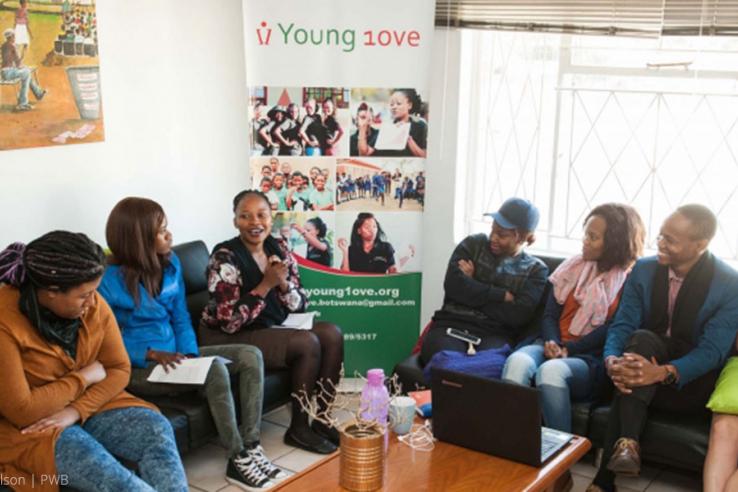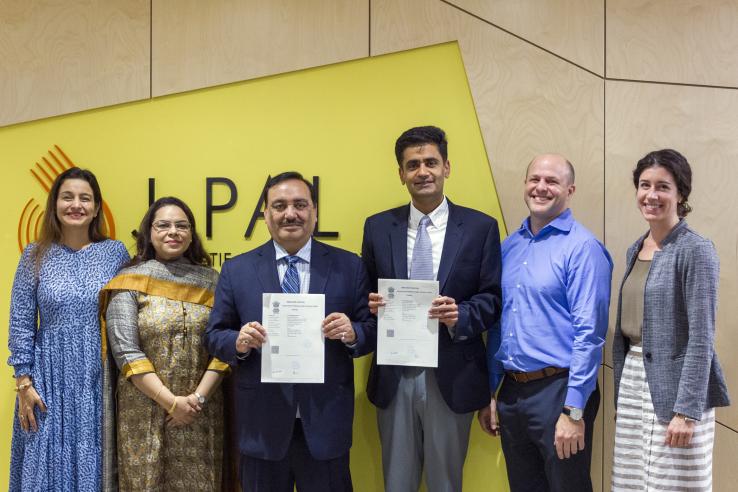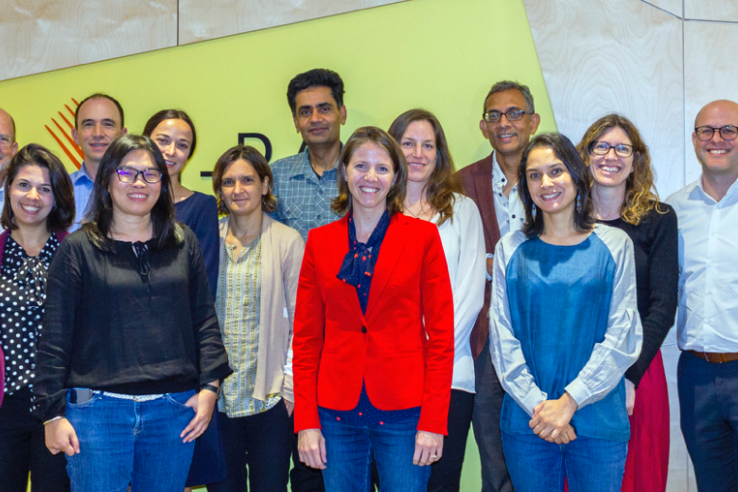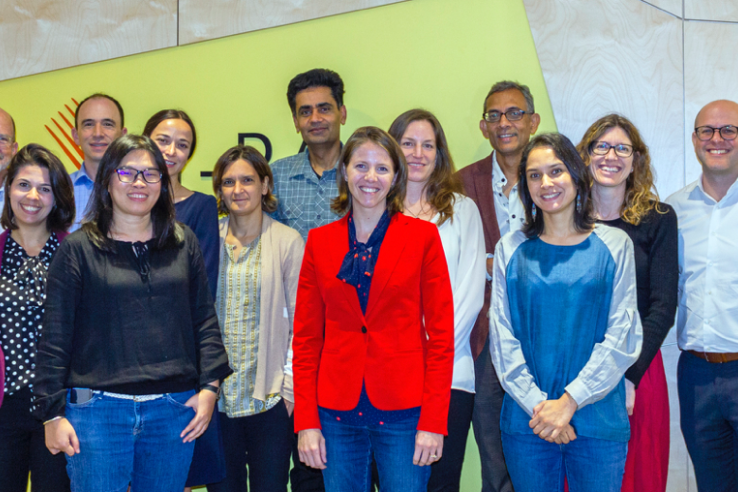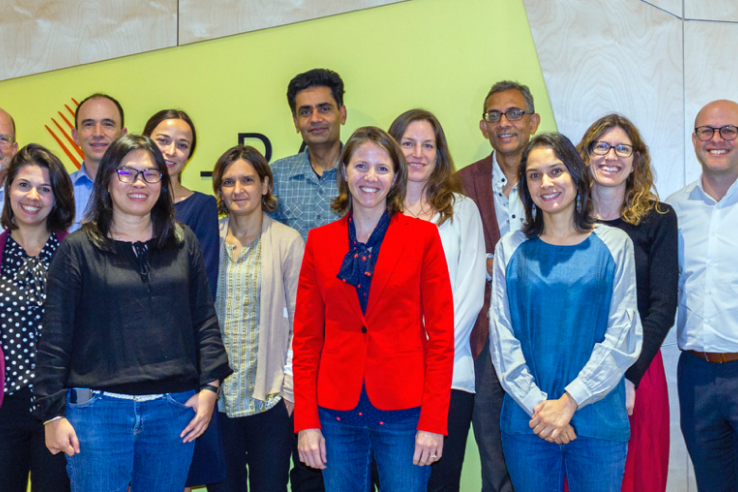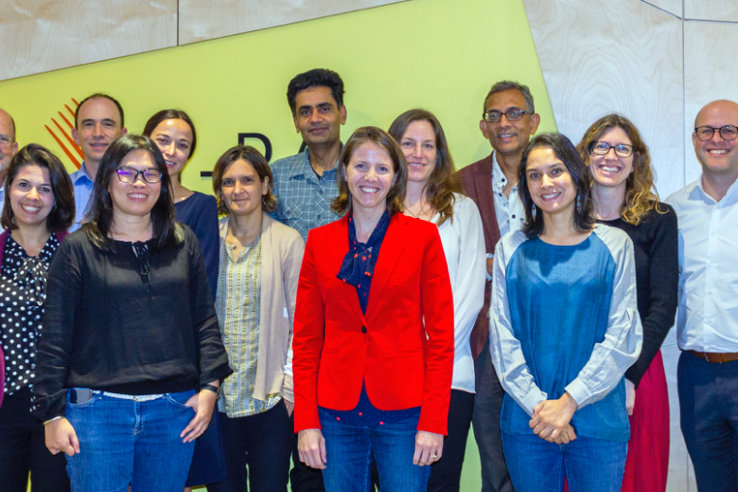Displaying 871 - 885 of 8061
Evaluation
Researchers conducted a randomized evaluation to test the impact of two different types of business training—formal business classes and mentorship from a successful entrepreneur in the same industry—on female entrepreneurs’ profits and use of new business practices in Kenya. They found that inexperienced female microenterprise owners benefited from mentorship, leading to increased short-term profits, though these effects faded after mentorship ended. Meanwhile, despite observing changes in business practices, they found that the traditional classroom training had no effect on profits.
Evaluation
Researchers are conducting an evaluation of the Government of Kenya’s G-United youth volunteer program to test the effect of randomly placing students in locations they prefer on the retention of volunteers in the program, their job performance, and their employment outcomes after the program.
Update
J-PAL updates
How does J-PAL's MicroMasters in Data, Economics, and Development Policy help prepare learners for real world challenges? Hear from two staff members of the NGO Young 1ove in Botswana about their experience in the program.
Update
J-PAL updates
In our February 2019 newsletter, Co-Impact announces funding for Teaching at the Right Level in Africa, J-PAL launches Innovation in Government Initiative, and more.
Update
J-PAL updates
J-PAL celebrates International Women's Day, discusses research on preventing patients from consuming unnecessary medical treatments, and presents a new policy publication on incentivized community...
Update
J-PAL updates
In our April 2019 newsletter, SFSD launches a new program in Egypt, J-PAL hosts a workshop for women’s and girls’ empowerment in Indonesia, and more.
Update
J-PAL updates
In our May 2019 newsletter, J-PAL launches the IDEA initiative, the Environment & Energy team discusses possible climate policies, and more.
Update
J-PAL updates
In our June 2019 newsletter, J-PAL affiliates' research on gender attitudes is featured in a new briefcase, J-PAL affiliate Paul Niehaus discusses unconditional cash transfers, and more.
Update
J-PAL updates
In our July 2019 newsletter, we announce our first class of blended master's students, welcome seven new affiliates, and more.
Update
J-PAL updates
On September 11, 2019, The National Health Mission (NHM), Government of Haryana signed a Memorandum of Understanding (MoU) with the Abdul Latif Jameel Poverty Action Lab (J-PAL) South Asia to systematically integrate the use of data and evidence from rigorous research to improve state programme...
Update
J-PAL updates
J-PAL co-founders Abhijit Banerjee and Esther Duflo, with longtime J-PAL affiliate Michael Kremer, were jointly awarded the 2019 Sveriges Riksbank Prize in Economic Sciences in Memory of Alfred Nobel. The prize was awarded “for their experimental approach to alleviating global poverty.”
Update
J-PAL updates
Los co-fundadores del Abdul Latif Jameel Poverty Action Lab (J-PAL), Abhijit Banerjee y Esther Duflo, y el profesor afiliado de J-PAL, Michael Kremer, recibieron el Premio en Ciencias Económicas en memoria de Alfred Nobel 2019. El premio fue otorgado “por su aproximación experimental al alivio de la...
Update
J-PAL updates
Abdul Latif Jameel Poverty Action Lab (J-PAL) co-founders Abhijit Banerjee and Esther Duflo, with longtime J-PAL affiliate Michael Kremer, were jointly awarded the 2019 Sveriges Riksbank Prize in Economic Sciences in Memory of Alfred Nobel. The prize was awarded “for their experimental approach to...
Update
J-PAL updates
Abdul Latif Jameel Poverty Action Lab (J-PAL) co-founders Abhijit Banerjee and Esther Duflo, with longtime J-PAL affiliate Michael Kremer, were jointly awarded the 2019 Sveriges Riksbank Prize in Economic Sciences in Memory of Alfred Nobel. The prize was awarded “for their experimental approach to...
Update
J-PAL updates
In our August 2019 newsletter J-PAL Africa launches Digital Identification and Finance Initiative (DigiFI Africa), J-PAL North America launches Evaluation Toolkit, and more.


